I can still remember the first time my family decided to sponsor a Compassion child. After hearing a presentation from a Compassion staff member at a Sunday church service, my parents asked my sister, brother and me to choose a photo of a child we had never met, explaining we were going to have the opportunity to get to know this child through written correspondence in the coming years.
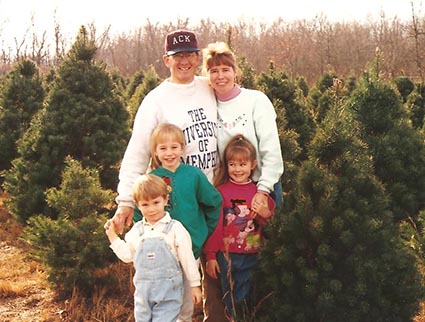
I remember poring over the photos at the sponsorship table, wanting to know everything about each of these kids – some who even looked like they could be in my class at school. It was so hard to choose.
Over the next few years, our family sponsored several Compassion children, and every few months we received short letters from these kids telling us a little bit about their lives.
I would sit with these letters, frustrated that I didn’t know more. What were these kids like in real life? Were they shy like me, or outgoing? Did they love ice cream and spending time with their families? Did they know how to ride a bike, and did they really enjoy school like they said they did in their letters?
I wanted desperately to be able to communicate better with my friends. I wanted to meet them and laugh with them, and though I couldn’t identify this desire at the time, I know now that what I really wanted was to share life with them.
I loved these kids because I knew they were the same as me.
As I’ve grown older and learned more about the intricacies of our broken world, my ability to love someone as an equal has faded. We all know that the factors that create poverty and suffering can quickly become overwhelming and complex, and it’s easy for me to get lost in these details.
And when well-intentioned people get lost in the details of poverty, more often than not we unintentionally end up writing a story of despairing and irreconcilable differences in which the details – not the person – become the main character.
I spent the last year living and working in Nairobi, Kenya, constantly fighting one of those pesky details: guilt. I felt guilty for being “different” (i.e., wealthier, better educated, more traveled, etc.) from many people with whom I interacted.
Paralyzed by my fear, I convinced myself that any attempts to love those around me would only be a rub in their faces if they had less than me (by worldly standards, at least).
My good intention was to not carelessly assume that I was helping someone just because that person was different from me when, in reality, I was either humiliating or patronizing the person.
My fear of unintentionally highlighting differences turned me to inaction, which, ironically, only emphasized our differences. Over the past couple of months, I’ve been processing my response to poverty during my time in Kenya.
I’ve realized that avoiding the differences is just as harmful as help offered strictly due to differences. In both cases, we’re choosing to love people due to the varying details of their lives rather than choosing to love them as our equals created in God’s image.
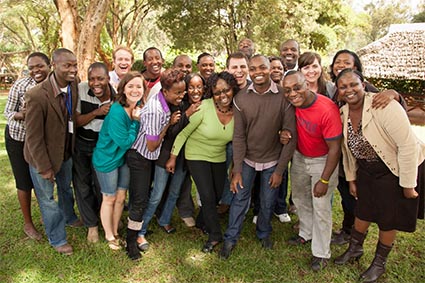
I want to love people again not because I feel that I have to, but because loving them is what I’ve been created to do. I want to love them without regard to their differences in an attempt to learn about our similarities.
I challenge you to do the same with your sponsored child.
Think of this child as someone who is just as deserving as you, with the same ability to express joy and laughter, feel pain, and appreciate ice cream. Write to your child and interact with her, knowing that she won’t benefit from your pity but will grow from your detail-free love.
Encourage your own kids to think of the photo on your fridge as a friend in a distant place who wants to grow up and is growing up just as they are: with a caring family and opportunities to learn about the world around them.
ABOUT THE AUTHOR: Kelsi Williamson has visited 15 countries and most recently returned from a year in Nairobi, Kenya, where she worked in communications for the human rights organization, International Justice Mission. She is currently based in Dallas, Texas, where she is focusing her attention on reportage and editorial storytelling.

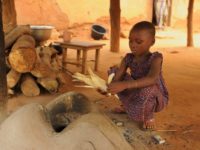
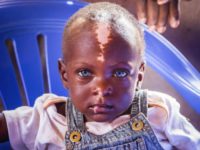
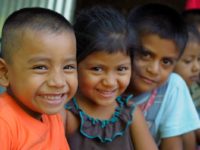
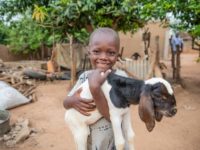


2 Comments |Add a comment
Wow…I always find it so easy to write to my girl in Mexico, but how often I think through something to see if it’s “too different”! I used to wonder if she was just sending me a hug for politeness’ sake because I sent her hugs. Her last letter put those fears to rest, though. 🙂 She’s really just the same as me!
Love it! Great points.